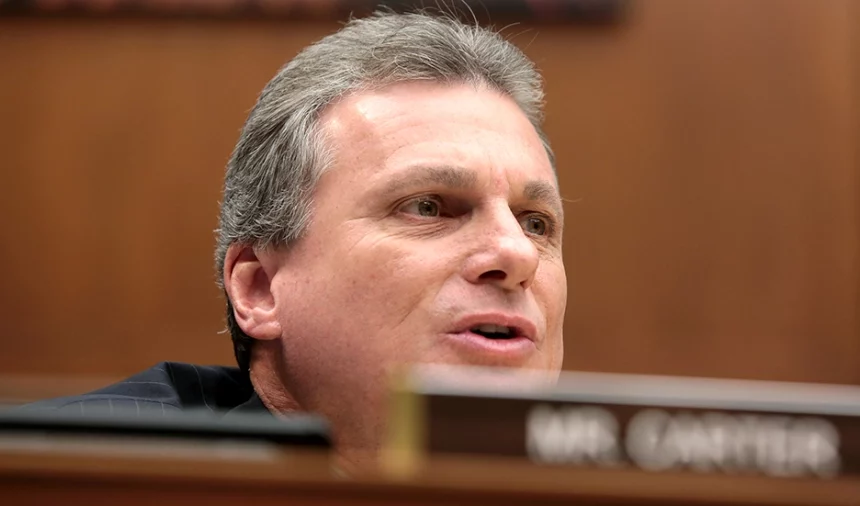As energy costs have increased over the past few months, partly due to Russia’s war in Ukraine, conservatives in Congress have stepped up to offer solutions to lower costs for consumers and boost America’s energy sector.
One conservative who has been an advocate for affordable energy is Congressman Buddy Carter, who represents Georgia’s 1st Congressional District. Carter is also a member of the House Select Committee on the Climate Crisis and the Conservative Climate Caucus.
Recently Congressman Carter joined John Hart on the Right Voices interview series to outline conservative solutions to climate change and rising energy costs.
Climate change can be a subject that many conservatives shy away from, but being vocal on the issue is important to Carter and the people that he represents. As he stated:
“I actually lobbied to be on the Select Committee for Climate Change because I feel very strongly that the representative of the entire coast of Georgia–over 100 miles of pristine coastline–should be involved in this discussion and should be on the Select Committee.”
>>>READ: Congressman Bruce Westerman Discusses Conservation, Climate Change on Right Voices
In addition to lobbying for a seat at the table, Carter has also outlined a three-pronged approach that he believes will create durable and sensible climate solutions. “I’ve always taken it from a pragmatic point of view in the sense that ‘how do we address this?’ Well we address this through three ways: adaptation, mitigation, and innovation.”
Georgia’s barrier islands are already seeing the impacts of rising sea levels, which have taken out roads and bridges and have emphasized the need to invest in adaptation measures.
On mitigation, Representative Carter outlined a few pragmatic ways that we can reduce climate damage to society. They include adjusting building codes to be more resilient to extreme weather and updating flood maps to better predict where floods may happen.
The Congressman said, “we all know we need innovation,” before adding, “We have to be smart about this. We can’t allow our policies to get ahead of our innovation.”
Europe offers perhaps the most realistic example of the effects of policy outpacing innovation. Governments there shifted away from domestic fossil fuel production and, in some cases, nuclear power. The renewables-only portfolio pushed for by governments left the continent largely dependent on Russia to meet energy needs.
In the United States, increasing barriers to fossil fuel production and implementing more stringent permitting regulations have stifled innovation. Carter offered a simple solution to this problem: “If the government would get out of the way and let the private sector do their work, I think we’d all be better off, particularly in the way of energy.”
Carter then added, “our private innovators here in America [have] cleaned up and done a better job [than the government]. I use the fact quite often that over the last decade, the United States of America has decreased our carbon emissions by more than the next 12 countries combined, while growing our economy. It can be done.”
>>>READ: Why American Fuel Production is Needed to Lower Emissions
The Congressman is a vocal advocate for an “all of the above” approach to energy. But a few key issues need to be addressed, such as rare earth minerals, the supply of which is largely owned by China.
“China has the rare earth minerals. They have what is needed to make the solar panels, to make the blades for the wind funnels, and everything else. Now we’re becoming more dependent on them for that? That’s not a good situation for us to be in and that’s going to lead to less national security.”
Instead of focusing exclusively on renewables, which are certainly needed and the Congressman supports, Carter is a staunch supporter of nuclear power.
“The only two nuclear reactors that are under construction right now [in the United States] are in the state of Georgia, just a couple hours north of my district. We need to get those online. The small modular nuclear plants are really what people are talking about and I think they’re the wave of the future and I think you’re going to start seeing a lot more of that. I’ve also been talking to some companies that have been very innovative in using the spent nuclear rods and the nuclear waste and using it and making sure that we’re able to recycle that to where it can actually be used to become usable fuel again.”
Carter concluded the interview by dispelling the myth that conservatives don’t care about the environment.
“We’ve got to be a leader. The Democrats would love for you to think that all conservatives, all Republicans are climate deniers, and that we don’t believe in at all, nothing could be further from the truth. My fondest memories growing up are going fishing with my dad along the [Georgia] coast. I want to make sure that my children and my grandchildren have that same opportunity. I love our environment and I love our natural resources that we have in the state of Georgia and all throughout the United States. Of course we care about this, but what we care about also is making sure that the private market, the private sector is involved in innovation.”
As conservatives engage in this space, leaders such as Representative Carter will be needed to offer durable and pragmatic climate solutions that bolster our natural and economic environment.
The views and opinions expressed are those of the author’s and do not necessarily reflect the official policy or position of C3.
